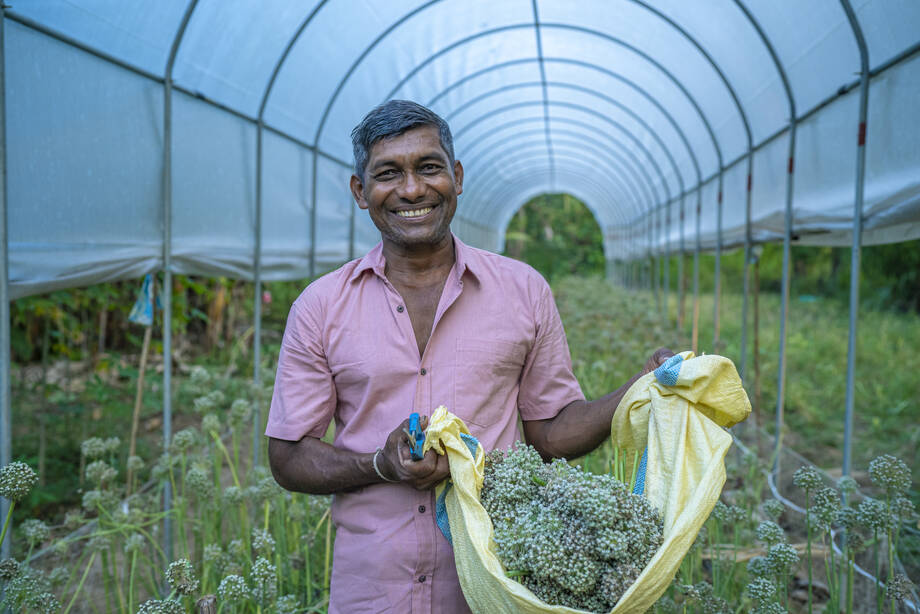Before the school bell rings announcing the start of lessons at the Senkadagala School in Kandy, central Sri Lanka, its students have already begun their lessons in their school garden.
Past its walls adorned with plastic bottles recycled as make-shift pots for brightly coloured plants, some push around wheelbarrows, ready to begin pruning, weeding and harvesting fruits and vegetables that are destined for the students’ meals.
Others begin work in the nurseries where the potted anthuriums and cacti are kept: these plants are carefully tended to be sold, along with the surplus fruit and vegetable harvest that the school garden yields. These conscientious gardeners are the Senkadagala School students who have sight and/or hearing impairments.
On a largely barren piece of land in Puttalam, Susila Kanthi’s house borders an extensive salt production factory on one side and vast lagoon on the other. Every Saturday evening, Kanthi gathers her net and oar and sets out to fish on the Puttalam lagoon. She returns home only the next morning, hauling her catch from the night.
In the fishing trade for nearly 27 years, Kanthi, now 57 years old, is still one of the few active fisherwomen working in one of Sri Lanka’s biggest fishing districts. As it requires a lot of time away from the home and family, fishing was traditionally viewed as a man’s job.
“I am the only woman engaged in the fishing industry in Palaviya. There are other women who can drive boats, but they do not go fishing,” says Kanthi.
In his 30 years as a farmer, Illeperuma Arachchilage Rathnayake, or Rathnayake as he’s known in his village, struggled to unlock the full potential of his onion seed cultivation. He began cultivating this crop as a 22-year-old with no official training but relied on lessons and cues from other farmers in his area.
Lacking the resources and proper equipment to protect his crops, Rathnayake used bamboo trees and polythene sheets as makeshift shelters. But these structures could not withstand heavy rains and wind, often blowing away and leaving his crops exposed to the elements.
This unpredictable weather and excessive rains, in particular, have been the latest in a series of challenges for the farmers in the rural village of Kalugala, nestled in Sri Lanka’s northern Anuradhapura district.
By the time the sun rises over the Sri Lankan village of Thuduwawa, on the Laccadive Sea, its fishers are already making their way back to shore, hauling home their catch of the day after a demanding early morning at sea.
Among these hardworking small-scale fishers are Don Jude Nimal and Madushan Prabodana Nonis, who have been practising raft or 'theppam' fishing, their whole lives. A theppam fisher rows a traditional one-person raft and uses a net.
The seasonality of their catches has always presented challenges, but the country’s ongoing economic crisis, made worse by the COVID-19 pandemic, has plunged them into greater hardship. A lack of alternative jobs and income, particularly during the six months of high tides during the monsoon when raft fishing becomes too dangerous, has heightened their exposure to food insecurity and poverty.

